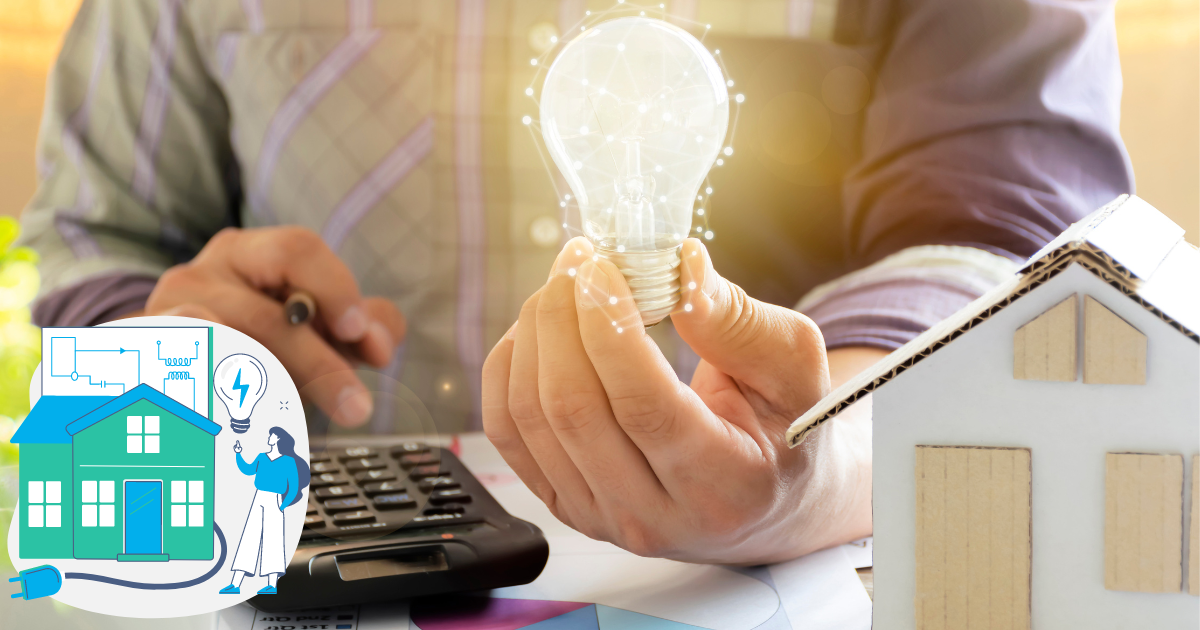As South Africans, we are all too familiar with the annual increase in electricity tariffs. The recent approval of a 12.74% hike by the National Energy Regulator of South Africa (Nersa) for the 2024/25 financial year brings renewed concerns about managing household expenses. However, there are practical steps we can take to mitigate the impact of this hike on our finances while also reducing our energy consumption. In this blog post, we’ll explore some effective strategies for saving money on electricity and making our homes more energy-efficient.
1. Invest in Energy-Efficient Appliances
One of the most effective ways to reduce electricity consumption is by replacing old, energy-guzzling appliances with newer, energy-efficient models. Look for appliances with the Energy Efficiency Label (EEL), which indicates their energy efficiency rating. Opt for appliances with higher ratings as they consume less electricity while delivering the same performance.
2. Unplug Unused Devices
Many of us are guilty of leaving appliances and electronic devices plugged in when not in use. This ‘phantom energy’ consumption can significantly contribute to our electricity bills over time. Make it a habit to unplug devices such as chargers, TVs, and computers when they’re not in use, or use power strips with switches to easily cut off power to multiple devices at once.
3. Maximise Natural Light and Ventilation
Take advantage of natural light during the day by keeping curtains and blinds open. This reduces the need for artificial lighting, especially in rooms where natural light is abundant. Additionally, ensure proper ventilation in your home to minimise the use of electric fans and air conditioning, especially during the warmer months.
4. Use Energy-Efficient Lighting
Replace traditional incandescent bulbs with energy-efficient alternatives such as LED or CFL bulbs. These bulbs consume significantly less electricity and last much longer, making them a cost-effective choice in the long run. Consider installing motion sensor or timer-controlled lights for outdoor and security lighting to further optimize energy usage.
5. Practice Energy-Conscious Cooking
Cooking can be a major source of energy consumption in households. To reduce energy usage in the kitchen, opt for energy-efficient cooking methods such as using a microwave or pressure cooker instead of conventional ovens and stovetops. Additionally, ensure that pots and pans are appropriately sized to match the burner size to minimize heat loss.
6. Regular Maintenance of Appliances
Proper maintenance of household appliances can significantly improve their energy efficiency and longevity. Clean or replace air filters in air conditioners and heaters regularly, as dirty filters can obstruct airflow and increase energy consumption. Similarly, ensure that refrigerators and freezers are properly sealed and free of dust and debris to optimize their performance.
7. Utilise Renewable Energy Sources
While it may not be feasible for every household, investing in renewable energy sources such as solar panels can provide significant long-term savings on electricity bills. In addition to reducing dependence on the grid, solar energy systems can also earn homeowners tax incentives and rebates, further offsetting installation costs.
8. Implement Smart Energy Management Systems
Consider installing smart energy management systems that allow you to monitor and control energy usage remotely. These systems often include features such as programmable thermostats, energy usage tracking, and smartphone apps that provide real-time insights into energy consumption patterns. By optimizing energy usage based on your household’s needs, you can effectively reduce electricity costs.
9. Practice Energy-Efficient Habits
Simple changes in daily habits can also contribute to significant energy savings over time. Encourage family members to turn off lights when leaving a room, take shorter showers, and avoid overfilling kettles and pots when boiling water. These small adjustments can add up to substantial savings on your electricity bill.
10. Educate Yourself and Others
Finally, take the time to educate yourself and your family members about the importance of energy conservation and the benefits of adopting energy-efficient practices. By raising awareness and fostering a culture of sustainability within your household, you can collectively work towards reducing your environmental footprint and saving money on electricity bills.
While the recent electricity tariff hike may pose challenges for South African households, there are plenty of practical steps we can take to minimise its impact on our finances and reduce our energy consumption. By investing in energy-efficient appliances, practicing smart energy management, and adopting simple yet effective energy-saving habits, we can all contribute to a more sustainable future while saving money in the process. Let’s empower ourselves to take control of our energy usage and make informed choices that benefit both our wallets and the planet.







